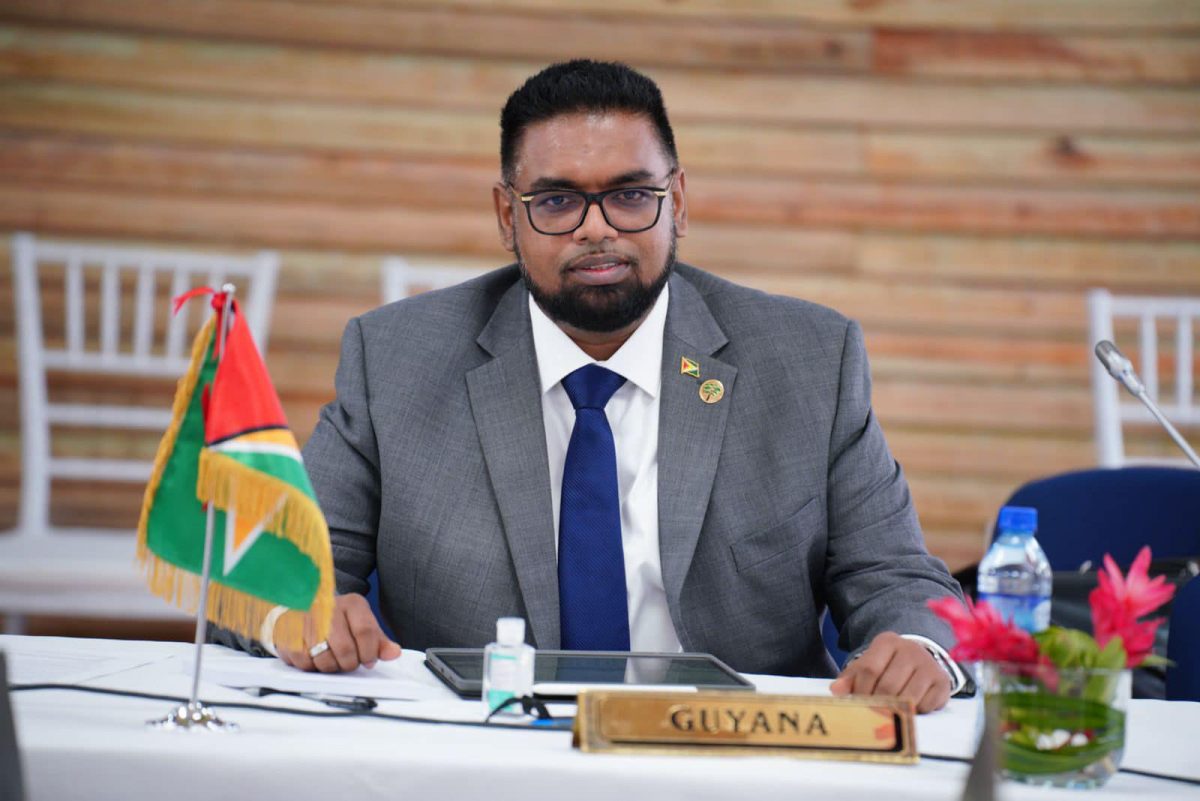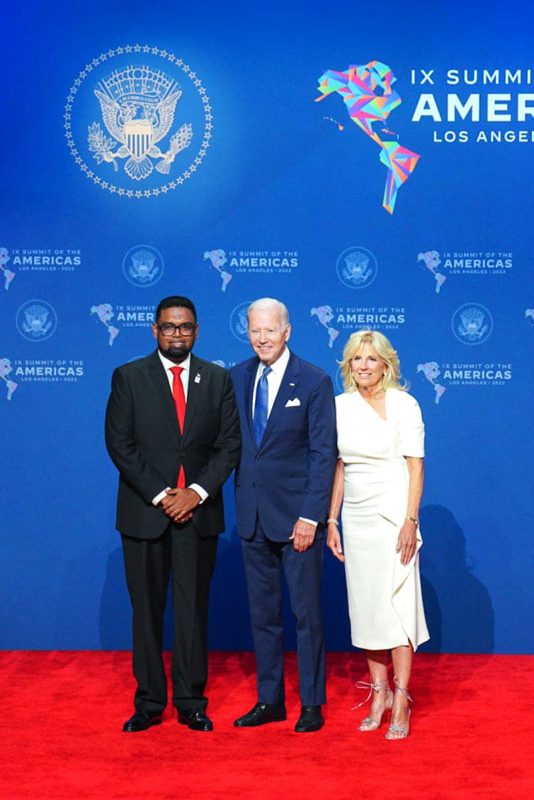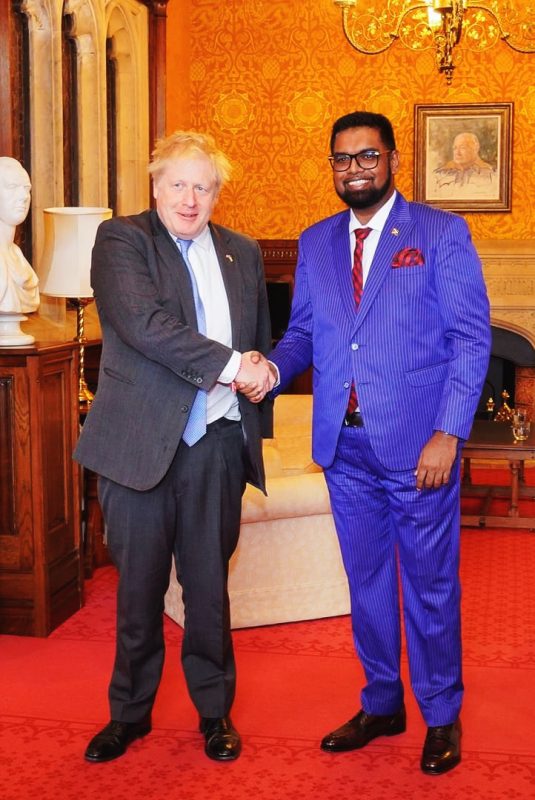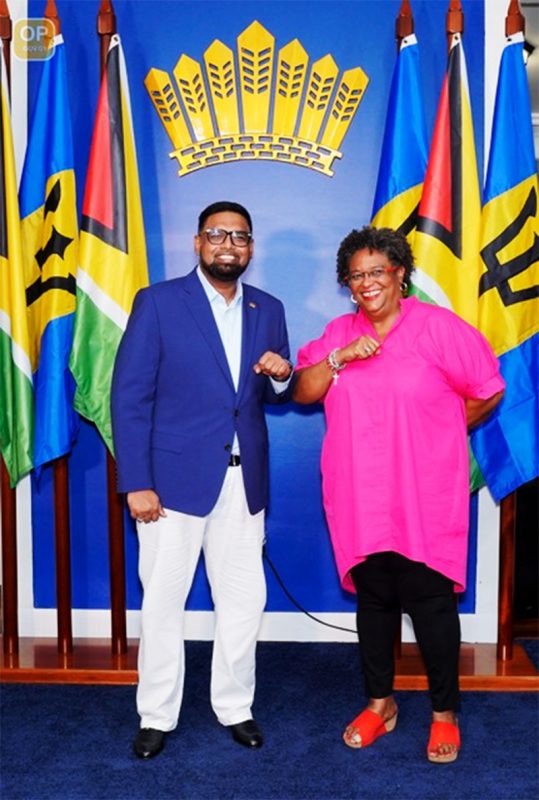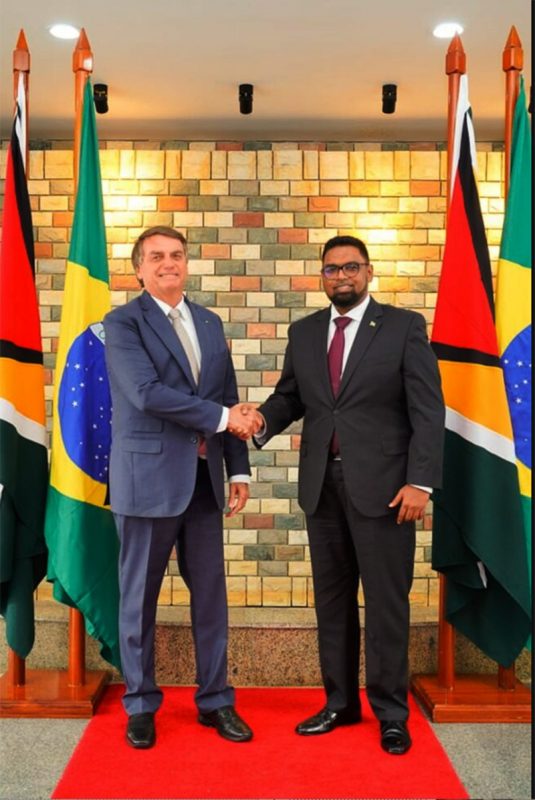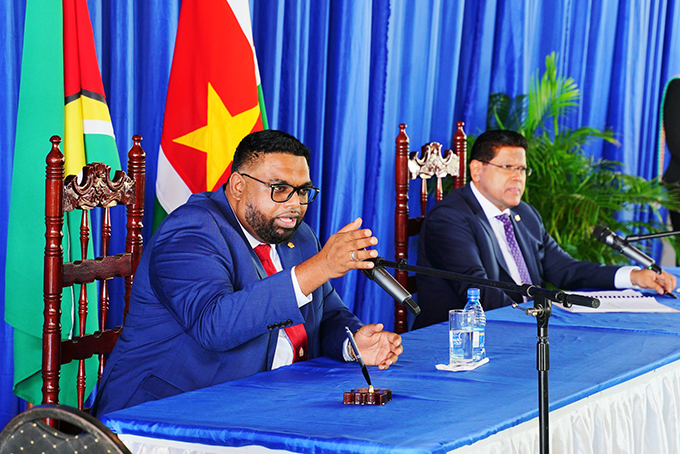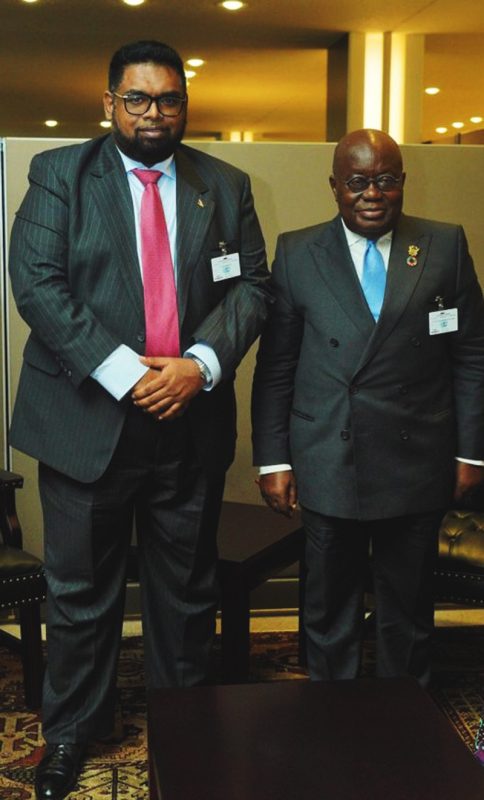Since his election to office as President of Guyana following the March 2020 general elections, Guyana’s Head of State, Irfaan Ali, has been having the time of his life on the international stage, His election to office having coincided, roughly, with Guyana’s emergence as an oil-producing country, his credentials to speak for Guyana – and even in some cases, the Caribbean – on matters of food security, Caribbean business, and the region’s economy, and on attracting investment to a region that had long been ignored by the international business community, appear sound.
His clout as a spokesperson for the Caribbean has been earned through the country’s oil and gas-related ‘bragging rights’ and there are those who may even say that the country’s youthful president has been presented with a better opportunity than any of his predecessors to lead the country to that ‘promised land’ of real development.
What is already very evident, however, is that to a greater extent than any other member of his Cabinet, the President is going to be guided through the governance process by his trusty Vice President who, truth be told, has already struck a posture which suggests that it is he who is likely to be the real force to be reckoned with in the Irfaan Ali administration.
It had come as more than a mild surprise, to the general public, when, back in 2019, PPP announced that Irfaan Ali, not generally known to have any kind of clout of his own within the Party, had been selected as its presidential candidate to contest the 2020 general elections. That said, there has never been any real doubt that his preferment had been ‘engineered’ by Bharrat Jagdeo, particularly when it was disclosed that that the party’s Grand Matriarch, Gail Teixeira had ‘stood down’ from the leadership race making way for the newcomer to easily defeat another Party stalwart, current Attorney General Anil Nandalall, in what turned out to be a tame ‘two horse’ race in which the eventual winner had the backing of the unquestioned Leader of the PPP.
Ali’s seeming lack of any real clout within the PPP itself, has, in an odd sort of way, allowed him to function in the role of President, never mind the fact that Jagdeo’s vice presidency has enabled his (Jagdeo’s) maintenance of highly visible evidence of his continued political influence at the level of government.
The presidency under his belt, Irfaan Ali has touted his youthfulness as an asset, asserting that “the very fact that our Party leadership has elected a young person shows that our Party is committed to young people, not only by talk but by action,” Ali is quoted as saying after the announcement that he had been the PPP’s ‘chosen one.’
It is, of course, much too early to make any kind of objective assessment of the Irfaan Ali presidency. There are, however, some things that can work to his advantage… like the fact that his Cabinet includes a handful of long-serving and experienced political colleagues including Jagdeo, Teixeira, and Nandalall. There are other things that are likely to work in his favour too… like the fact that his presidency has coincided with the realisation of the earliest returns from the country’s oil bonanza, a circumstance that has cleared a path for the country to cease to be seen as the ‘sick man’ of the Caribbean. Beyond that, it is President Ali to whom it falls to welcome investors from across the world who are beginning to flock to Guyana’s shores.
On the political side President Ali has managed to steer clear of any serious political controversy, a circumstance that is widely felt to be a function of his being shielded from the worst excess of the familiar domestic pitfalls on account of his Vice President’s and Party Leader’s counsel.
The circumstances have allowed him to enjoy a somewhat ‘protected’ presidency and while his role as what one might call a ‘foreign policy President’ has exposed his lack of familiarity with the international stage, President Ali appears to have put a brave face on his perceived limitations and soldiered on. Indeed, an argument might even be made for him having indeed become something of a ‘foreign policy President,’ addressing the United Nations last September, meeting more recently with British Prime Minister Boris Johnson, and becoming pretty familiar with most of the serving CARICOM Prime Ministers as well as the Heads of State of Brazil and Suriname.
It is, as well, not without significance that on his watch, Guyana’s recently earned status as an oil-producing country has placed it in good standing with the region as a whole.
It is particularly significant that the Guyanese president has met with his counterparts from both Brazil and Suriname, the latter against the backdrop of a shared good fortune of discovery of significant quantities of oil and gas within the Guyana/Suriname basin, a circumstance which may well go a long way towards settling the long-standing dispute between the two countries over the Corentyne River. A common interest in the exploitation of their oil and gas resources has also seen the Guyanese president hosting the President of Ghana Nana Akufo-Addo.
Up until now, President Alli has hit no political hurdles big enough to distract him from his preoccupation with blowing Guyana’s trumpet across the world. Those apart, President Ali has travelled to the Middle East, the United States, the United Kingdom, and to CARICOM countries, promoting Guyana’s investment potential that has arisen out of its oil bonanza and seeking, notably through his promotion of the country as the regional leader to lead the regional discourse on Caribbean food security.
With the timing of his accession to office having coincided roughly with the commencement of oil recovery by ExxonMobil and the realisation of receivables for the country’s economy, the administration of Irfaan Ali is ideally positioned to begin a process of socio-economic transformation at home that could boost his support base in a country still plagued by ethnic and political divisions. Those, however, could well become subsumed beneath what is becoming a national preoccupation with seizing such opportunities as might arise from the country’s returns from the oil and gas bonanza.
The country’s private sector would appear to be rallying behind the President, seemingly hugely incentivised by the investment partnerships that are likely to emerge from the attention which Guyana has attracted from the international business community. As for the populace as a whole, there is likely to continue to be, for some time to come, a good deal of bellyaching over who is ‘enjoying the sweet’ and who is not.
In a country long-plagued by official mismanagement and corrupt practices at the level of government, there is a great deal of ground that President Ali has to cover both inside and outside his own administration. Historically, Presidents of Guyana have almost always simultaneously held high office within the political party that put them there. That is not known to be the case in the instance of President Ali which is probably the reason why he is yet to cultivate that authoritative ‘political’ persona associated with most of his predecessors, including, of course, his politically savvy, if frequently caustic, Vice President. If, however, his political fortunes hold, he will have sufficient time to become more schooled in those areas of political behaviour.
